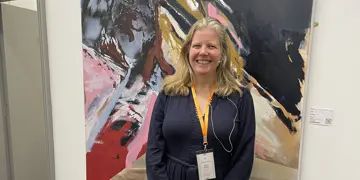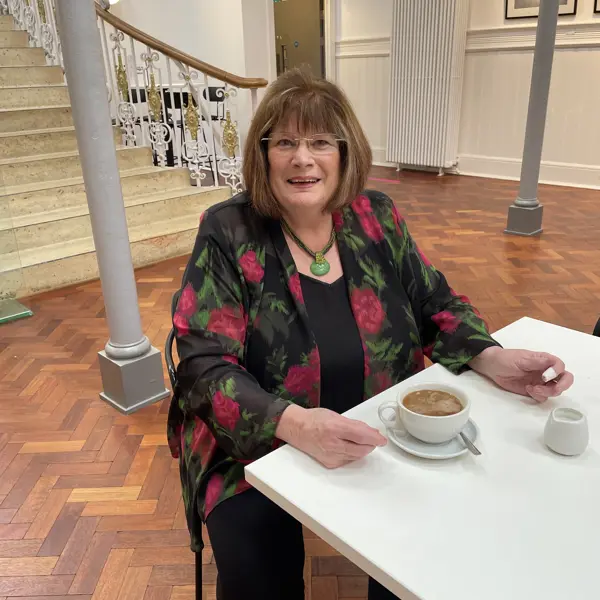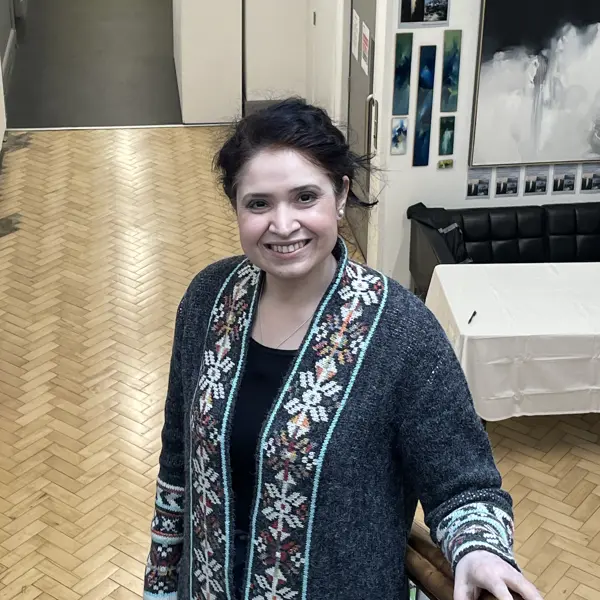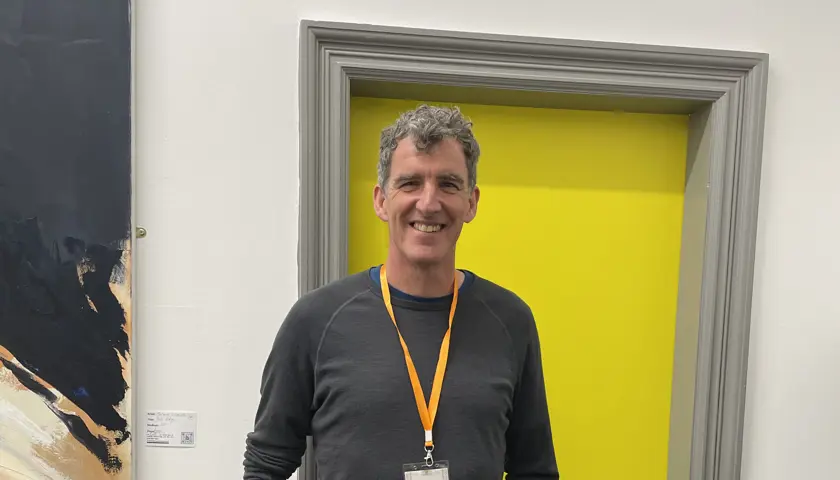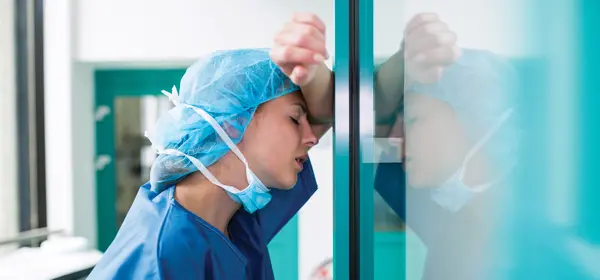Redefining health
Redefining health
A GP wants to change the way her colleagues and patients think about health – and many say they have already benefited from the new approach. Jennifer Trueland reports
‘First of all, I was very sceptical. I thought, “if this woman wants me to go and hug a tree, I am out of here”. But the more I listened, the more I felt I had hope.’
Judith James-Davies is a former head teacher of two large inner-city comprehensive schools in London. Life has been tough at times and when she took early retirement, she had chronic pain, anxiety and depression. Having moved to the Highlands of Scotland, she was taking multiple pain killers every day and was wondering if it was all worth it.
A difficult hospital appointment – she was due to have a knee replacement – convinced her she had to look for another way and that is when she crossed the threshold of Alness and Invergordon Medical Practice. There she met Katharine Jones (pictured, top), a GP and practitioner of mind-body medicine – it was a consultation that was to turn her life around.
‘I sat there, and she listened to me. There’s an Old Testament saying that, without a vision, the people perish. I had lost my vision. But I came out with so much hope.’
At the end March, around 60 health professionals – around half of whom were doctors – gathered at the Inverness Creative Academy (a former school) to attend The Sustainable Healer conference. Billed as a two-day event ‘to change the way we think about health’, it was organised by Dr Jones, who is a GP in Alness and founder of Wild-Ness Health, a collective of health professionals, creative artists and people with lived experience (or ‘patients’ as they previously would have been called). Ms James-Davies was among those to share their stories.
Challenging the status quo
The idea of the conference was to explore how mind-body medicine can transform the health of communities – but crucially, how taking this approach could help doctors, and therefore the NHS, to work in a way which is much less harmful to them.
And nobody could doubt the present system isn’t working well, for patients or for doctors. By coincidence, on the first day of the conference, Audit Scotland published a report on general practice that laid bare the challenges facing what BMA Scottish GPs committee chair Iain Morrison called the ‘bedrock of the NHS’. And the BMA and others have repeatedly warned that increasing levels of doctors in all branches of practice and at all stages of their careers are at risk of burnout, if they are not experiencing it already.
According to Dr Jones, the conference set out to explore a new approach to health which could be integrated into the system without the need for additional resource in terms of time or qualifications.
‘This requires a change in our cultural beliefs about health in which this is redefined as our ability to overcome pain and illness, rather than the rather unrealistic definition of health as the state of complete wellbeing, not just the absence of disease or infirmity,’ she says.
‘This change in philosophy offers a way out of the widely acknowledged dysfunction in the health service, in which high-cost, high-harm interventions delivered in an increasingly overwhelmed secondary care are prioritised over and above low-cost, low-risk interventions that could be delivered in the community despite endless government reports setting out the need for such a paradigm shift.’
She believes a ‘salutogenic’ approach to health shifts power from the system to people and communities by drawing our attention away from things that lie outside our control, which promote a perceived dependence on the system such as the results of tests and treatments, and towards things that lie within our circle of control such as daily habits and the concept of taking radical responsibility for our thoughts, feelings and actions by understanding some of the most powerful concepts from psychology, lifestyle medicine and mind-body medicine.
The conference explored a six-step framework for ‘whole-person’ consultations and how this can be adapted to be delivered within a 15-minute consultation across a wide variety of NHS roles without the need for additional qualifications.
The programme included speakers who are well-known in their fields (and sometimes beyond) such as Paul Garner, an epidemiologist who used his own experience of recovery from long COVID to help others and consultant neurologist Ingrid Hoeritzauer, who researches functional neurological disorder.
Others included Sheffield GP Ollie Hart, previously co-chair of NHS England’s strategy board for supported self-management, whose company, Peak Health Coaching, trains doctors and others in coaching techniques.
This requires a change in our cultural beliefs about health
Katharine Jones
Although they all had interesting things to say, it was the people who had chosen to attend who provided much of the meat of the (vegetarian-catered) conference. One doctor shared how she had used Dr Hart’s coaching techniques to help a previously resistant patient to come up with a plan to improve management of their condition.
Another, Minha Rajput-Ray, described how she had used her own experience of injury, trauma and illness to set up the Curaidh Clinic, which treats patients who have medically unexplained symptoms; have pain, fatigue, anxiety and chronic conditions, and who find themselves unresponsive to conventional therapy.
Having first trained as a naturopath and osteopath before qualifying as a medical doctor, she had expected to be able to use the same holistic approach in medicine – but while in training, was ‘told off’ by a geriatrician for asking a patient about their hobbies and was ordered to focus on the physical.
The Doctor spoke to several people about why they were attending the event – and the theme which came out strongly was they were looking for a different way to practise, one which would be good for patients but also be better for them as doctors.
Cate Bulmer, a GP trainee in Elgin apologised for sounding particularly negative about general practice – she was just recovering from what will hopefully be her final exams and was feeling the effects of that. Had the conference persuaded her there was a different way of working, and one that she might achieve? There had better be, she said, or she’d be leaving medicine, selling up, and going to live off-grid until she decided what else to do with her life.
‘The current medical model doesn’t work. We’ve got to find a better way, a way that’s not morally injurious.’ The conference had helped, however. ‘I’ve come away from it feeling hope – it was about hope for patients but it has given me hope as a doctor for my future too.’
Others, further on in their careers, were already ‘walking the walk’ as far as they could, finding ways to incorporate more of a mind-body approach to their work. Michelle Mehers, for example, a partner at Munlochy and North Kessock Surgery near Inverness, said she runs a weekly 7am yoga class for staff and patients. While she does it because, in her words, it’s a tool to help the community take radical responsibility for their own health, she gets a lot out of it personally too.
‘I don’t tell them what to do – I invite them to be present and embody the breath-led movements to regulate their nervous system. It’s the best part of my week because I know yoga has enriched all aspects of my life and sharing that is exciting.’
Technology is also coming into play. Angus Perry, another Alness GP, described how he had used artificial intelligence to build a tool to assist in drawing up personalised plans for patients (based on his own experience of looking after his mother).
So, there was hope at the conference, but there was also an undertone of unhappiness. As Dr Hart said himself, primary care is in a ‘threat’ zone at the moment, with GPs feeling unable to make a meaningful difference to their patients – probably because what we, as patients (and doctors are patients too), do ourselves is the biggest determinant of outcome, and the current system with short appointment times isn’t set up to support people with that.
Unless you’re in Alness, of course – at least to some extent. As The Doctor reported a year ago, Dr Jones managed to negotiate with her health board, NHS Highland, to have some longer consultations so she can practise a mind-body approach.
‘I’ve become known as the GP who does 30-minute appointments, but it’s only three 30-minute sessions per week,’ she says ruefully.
It was about hope for patients but it has given me hope as a doctor for my future too
Cate Bulmer
She explains later she sounded ‘rueful’ not because she wished all her consultations lasted half an hour but because it was often (wrongly) assumed mind-body medicine could only be practised in these longer sessions.
‘The truth of the matter is that 1.5 hours of my clinical work I have half-hour appointments but for the other 13.5 hours I have 10 to 15 minutes. I still use a "whole-person" approach but shorten the time needed.’
For example, although ideally she would watch certain resources with patients – such as a 12-minute video from Living Proof, a non-profit organisation led by people who have recovered from chronic pain and illness – to pick up valuable cues, she will text them a link. ‘This is less powerful but still way more effective and energising for me and the patient than what I was doing before.’
Nevertheless, it is showing excellent results, particularly considering that Alness is an area of high deprivation, which can limit patients’ access to resources – ranging from books (sometimes quite expensive books) and YouTube videos and podcasts to decent nutrition. It’s a question of tailoring each session to the individual person and helping them to find the way forward that suits them.
It has worked for Ms James-Davies, who now lives well with arthritis. After that initial appointment, she read everything she could get her hands on about the mind-body approach and implemented techniques including journalling and mindfulness exercises.
‘My pain [score] went from an eight or a nine to five within three weeks, and within six weeks I was off all medication,’ she explained. ‘I cancelled the knee surgery. So, within weeks I went from that low point to no medication and no surgery.
‘This year, for my 75th birthday, I’m going abroad – I’ve not been on a plane for five years – and I’m driving 12 hours to Wales, which I’ve not done for nine years. It’s amazing.’
- Wild-Ness Health will be running a series of workshops and follow-up events online to support clinicians integrate this into the NHS and are open to requests for bespoke events. See www.wild-ness.co.uk or email info@wild-ness.co.uk for more information


